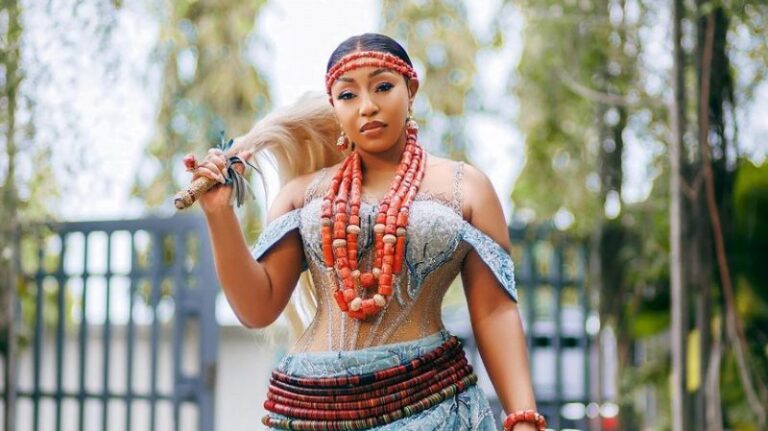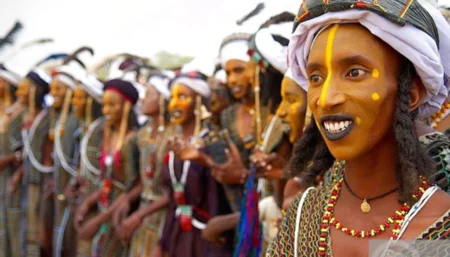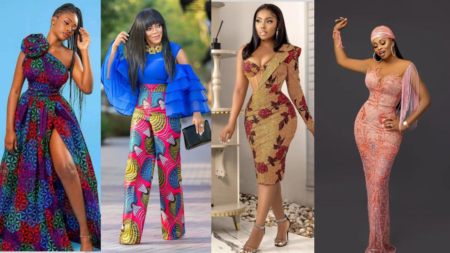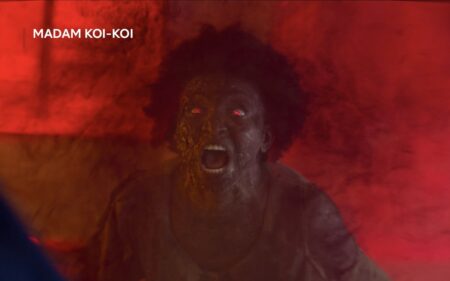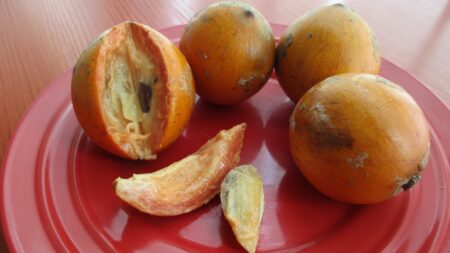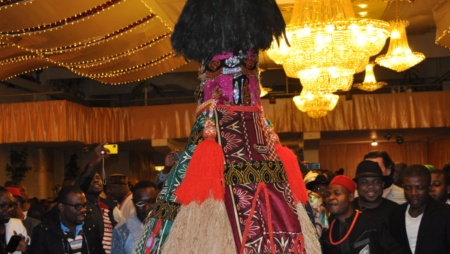Table of Contents
Imagine a world where vibrant colors dance in intricate patterns, where traditions weave their own tapestry of beauty. This is the enchanting domain of Igbo bridal attire, a journey into the heart of the Igbo wedding tradition, where art and heritage intertwine, and where every stitch, bead, and accessory is an ode to the legacy of the Igbo people.
Steeped in vibrant colors, intricate designs, and a rich cultural significance, Igbo bridal attire effortlessly captivates the eye and showcases the beauty of African tradition. From the head-to-toe embellishments of the bride’s outfit to the exquisite accessories, every element of an Igbo bride’s ensemble tells a story and reflects the values and customs of the Igbo people.
In the heart of the Igbo culture, weddings are not only a celebration of love; they are revered opportunities to pay homage to their ancestral heritage. At the center of this celebration lies the bridal attire, with each piece carefully selected to represent the essence of the bride’s beauty and the elegance of a people deeply rooted in their traditions.
The allure of the Igbo bridal attire is characterized by its attention to detail. Elaborate patterns, vibrant colors, and luxurious fabrics are meticulously combined to create stunning ensembles. From the traditional blouse and wrapper known as the “bloussant” to the intricately beaded accessories and coral beads adorning the bride, every part of the attire is crafted with precision and artistry.
However, beyond its visual beauty, the Igbo bridal attire holds within its layers, deep cultural and historical significance. Each element, from the intricate beadwork to the symbolic motifs, tells a story passed down through generations— a story that marries modernity with the echoes of the past.
Join us in this article as we delve into the intriguing world of Igbo bridal attire. Together, we’ll explore its history, decode its rich symbolism, and dance in the breathtaking beauty that makes it not just a fashion statement but a true reflection of African culture and tradition, where every stitch is a brush stroke on the canvas of history, and every piece, a testament to the enduring legacy of the Igbo people.
Significance of Igbo Bridal Attire in the Culture and Tradition
Igbo bridal attire emerges as a breathtaking embodiment of cultural grandeur, a true synthesis of resplendent beauty, deep-seated traditions, and timeless elegance. This distinctive attire holds immense significance within the rich tapestry of Igbo culture and tradition. It serves as far more than just clothing; it is a symbol, a storyteller, and a guardian of ancestral heritage.
For the bride, it marks a transformative moment in her life as she transitions from a maiden to a married woman—a rite of passage. It embodies the cultural belief that marriage for the Igbo people is not just a union of two individuals but a merging of clans and a continuation of ancestral lineage. The attire becomes a vessel through which her identity is intricately woven into the fabric of her community’s history.
Each element of the attire proudly displays the bride’s family lineage and serves as a testament to the wealth and social status of her family. The intricate designs, motifs, and choice of colors reflect the historical lineage of her family, celebrating the ancestors who came before her.
The careful selection of colors and patterns in Igbo bridal attire communicates a complex language of symbolism. Vibrant colors like vivid red, shimmering gold, and lush green are purposely chosen, each shade resonating with joy, fertility, and prosperity. These colors transcend mere aesthetics; they are vessels of emotions and traditions, woven into the very fabric of the bride’s journey.
Yet it is within these intricate designs that the heart of Igbo bridal attire truly comes alive.
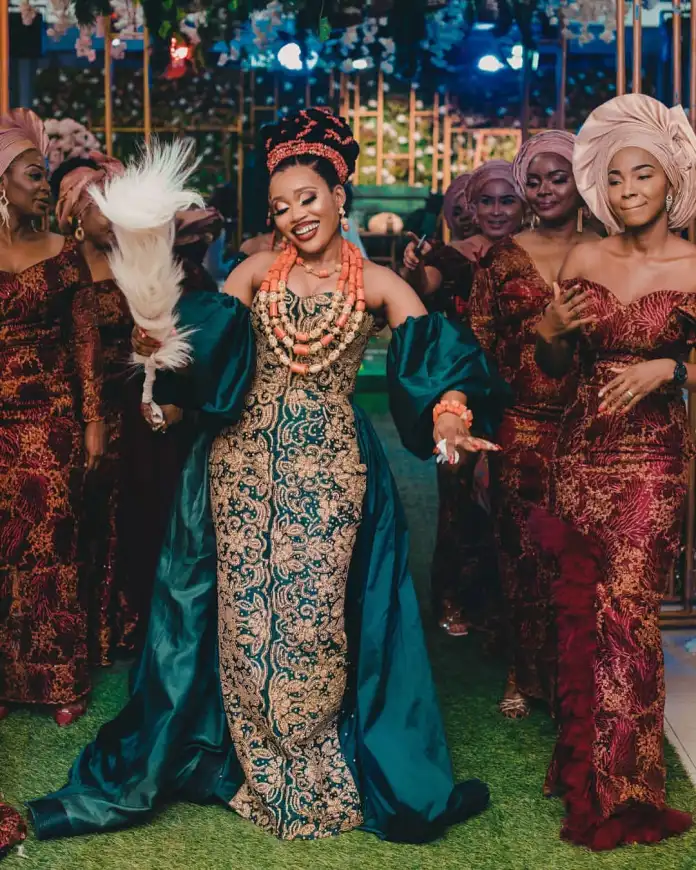
Each motif, a testament to the reverence for nature, animates the attire with animals, plants, landscapes, and historical events, further connecting the bride to her cultural roots. The revered Uli and Nsibidi patterns, ancient symbols etched with wisdom, carry narratives that have been used for centuries to represent ideas, concepts, and folklore.
Among the most revered patterns is the Ichi pattern, a series of parallel lines that trace the lineage of the bride’s family. This pattern not only reflects the family’s history but also serves as a source of pride and identity. Another notable pattern, the Ogene design, takes inspiration from the resonant sound of a brass gong. Often adorning the bride’s headpiece, it is believed to usher in good fortune and prosperity, reinforcing the importance of tradition in the marriage ceremony.
In essence, Igbo bridal attire isn’t just an ensemble; it’s the symbol of identity, family, cultural heritage, and tradition of the Igbo people. It’s a living testament to the past, a vibrant celebration of the present, and a fervent prayer for the future.
The Deep-Rooted Significance of Marriage Ceremonies in Igbo Culture
In the heart of Nigeria, beneath the lush canopies of the rainforests and amidst the vibrant sounds of traditional drums and populations, the Igbo community weaves together the threads of centuries-old tradition during their marriage ceremonies. These rituals are not mere events; they are profound expressions of love, intricately weaving together not only the lives of individuals but also the rich fabric of families, communities, and cultural heritage.
At the core of Igbo culture lies a deep-rooted reverence for marriage, an institution celebrated not only as a union between two individuals but as a fusion of histories and lineage. This sanctified journey is a complex fusion of customs and rituals, each with unique symbolism and purpose. From the intricate Igba Nkwu or Wine Carrying ceremony symbolizing acceptance and hospitality to the symbolic breaking of kola nuts, each tradition is a brush stroke in the larger portrait of Igbo matrimonial culture.
These marriage ceremonies are more than just joyous celebrations of love; they are a harmonious convergence of families, binding them in a shared future while paying homage to their shared past. The exchange of symbolic gifts, such as the Ime Ego (bridal price), transcends material value, embodying the emotional investments of both families. They serve as a means of connecting generations, strengthening community ties, and honoring the spirits of ancestors.
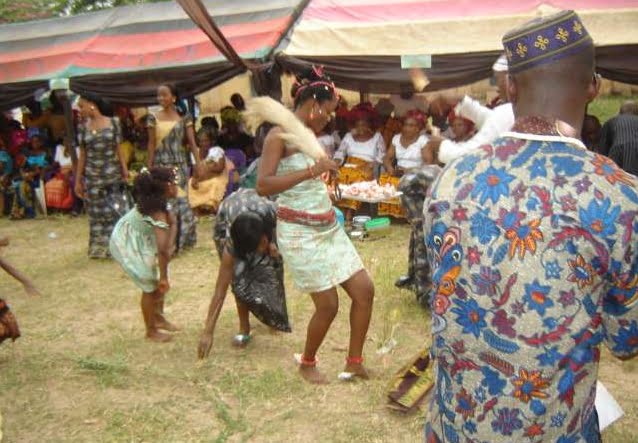
Now, take a deep pause.
Look at the image again. Can you picture this? The vibrant colors of the bride’s attire. Can you hear the rhythmic beats of the drums, and feel the warmth of the community coming together in celebration?
The rhythm of Igbo marriage ceremonies beats in harmony with the pulsating heart of the community. Dance, music, and attire become mediums of cultural expression, uniting the attendees in a jubilant chorus of celebration. The bridal attire, meticulously curated with age-old fabrics, stunning motifs, and intricate beadwork, is a testament to not only her beauty but also the artistic heritage of the Igbo people.
As the wedding culminates in the exchange of vows and blessings, they etch another chapter in the annals of Igbo history. The commitment made by the couple is a promise not only to each other but to their ancestors and their descendants.
Through these rituals, the Igbo people pass down the rich tapestry of their heritage to the next generation as the newlyweds embark on their shared journey, armed with the wisdom of their forebears.
Historical Context
For the Igbo people, marriage is more than the union of two individuals; it’s a merging of clans, a strategic alliance, and a continuation of ancestral lineage.
Historically, Igbo brides were known for their lavish and elaborate wedding attire. The bride’s family would often spend a fortune on the bride’s outfit, as it was seen as a symbol of status and wealth. The bride’s hair would be adorned with intricate braids, embellished with cowrie shells and beads. These shells and beads were not only beautiful but also held spiritual significance for the bride and her family.
The Igbo wedding ceremonies being grand affairs, often stretched over several days, involving not just the immediate families but the entire community.
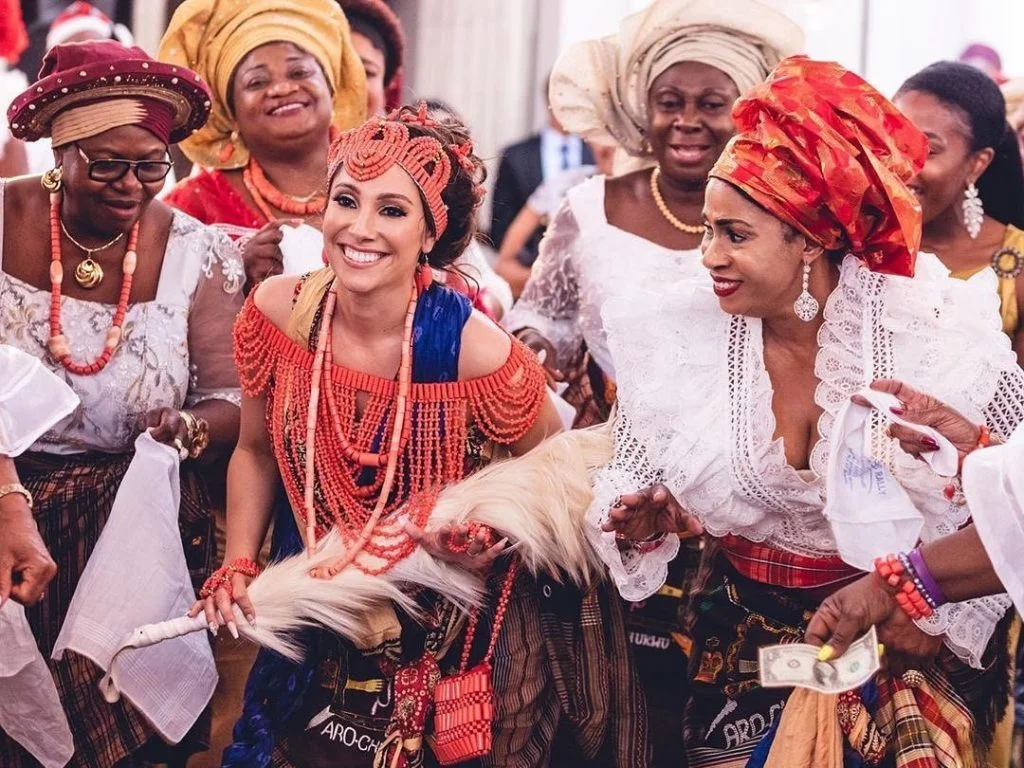
These ceremonies are an integral part of the marriage process, each one holding deep significance and meaning. From the traditional dowry ceremony—Ime Ego—to the joyous exchange of gifts, every detail is carefully considered, with its own important role to play.
While the world around them has evolved, the essence of Igbo marriage ceremonies remains deeply rooted in tradition, with each ritual echoing the practices of generations past.
For the Igbo people, marriage is more than a temporary union; it’s a sacred bond that echoes through time, creating enduring connections that withstand the test of generations.
This historical context unveils the richness of Igbo bridal attire, which is not just an adornment but a true reflection of a culture’s resilience, wealth, and commitment to preserving its heritage.
Components of the Igbo Bridal Attire
The traditional Igbo bridal attire is a masterpiece composed of various components, each one rich in symbolism. From the exquisite headpieces to the intricate jewelry, each element has a special story to tell about the Igbo culture and the bride’s journey into matrimony.
- Isi agụ (Lion’s Head): At the forefront of Igbo bridal attire stands the Isi Agu, a resplendent velvet wrapper prominently featuring lion’s head motifs. Beyond its aesthetic appeal, the Isi Agu embodies the core values of strength, bravery, and royalty, attributes highly esteemed within the Igbo community. The bride, as she wears this regal garment, not only showcases her beauty but also her inner fortitude and royal lineage.
- Coral beads: Beyond their role as mere adornments, coral beads hold a sacred significance in Igbo bridal attire. Worn as necklaces, bracelets, and sometimes even crowns, these beads represent the bride’s link to her ancestral heritage. They are a visual testament to her royalty, beauty, and the spiritual connection that binds the Igbo people to their ancestors. Each bead tells a story, whispering the tales of generations past into the bride’s ears as she embarks on her marital journey.
- Blouse: Complementing the resplendent Isi Agu is the blouse, often crafted from delicate lace, sequins, or other shimmering fabrics. It’s not merely a piece of clothing; it embodies elegance and grace, treats that mirror the Igbo bride herself. The blouse accentuates her beauty, symbolizing the radiance she brings to her new family and community.
- George wrapper: The George wrapper, adorned with rich embroidery, transcends its role as clothing; it’s a status symbol. Wearing the George wrapper signifies not only the bride’s affluence but also the respect she commands within the community. It’s a testament to her standing and influence as she embarks on her journey into married life.
- Uli body art: The canvas of the bride’s skin becomes a tapestry of tradition, painstakingly drawn with natural dyes. This intricate art form signifies the bride’s beauty, maturity, and readiness for the responsibilities of marriage. Each line and curve on her skin narrates a story of transformation, from a young woman to a bride prepared to embrace her role in the family and community.
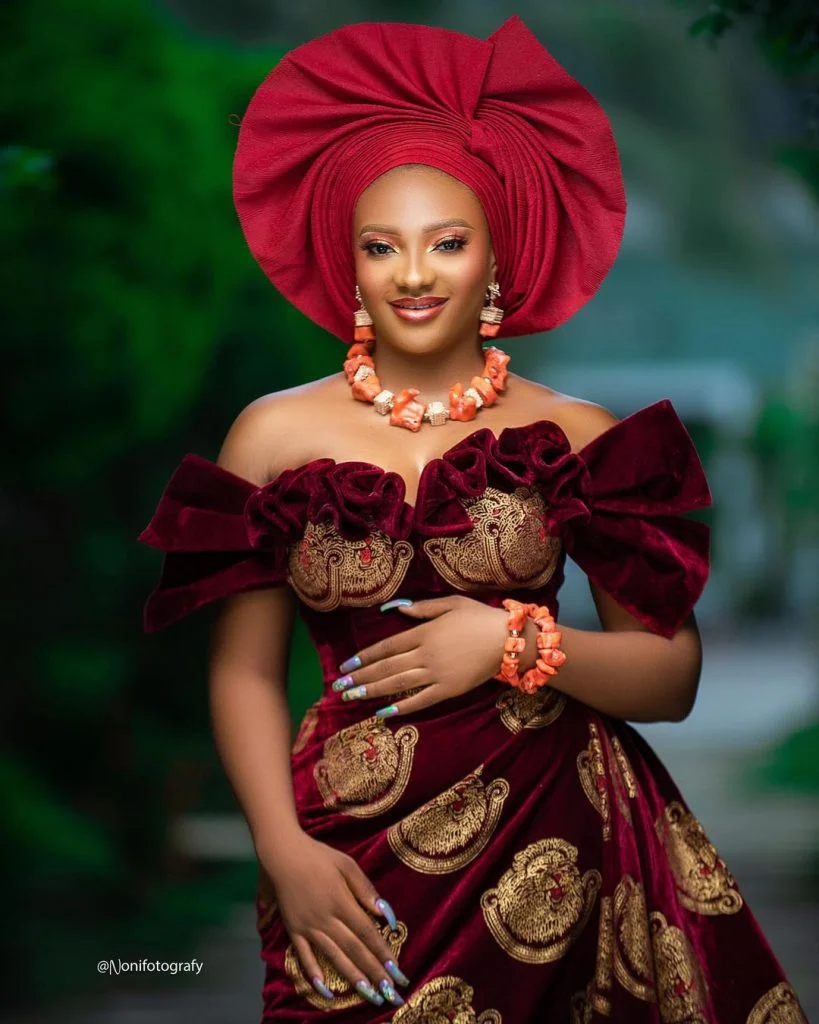
In sum, the components of Igbo bridal attire transcend their material form, carrying with them centuries of tradition, symbolism, and cultural pride. As the bride adorns herself with these elements, she becomes a living testament to the rich heritage and timeless beauty of Igbo culture, embracing her role as a beacon of tradition and the promise of a new family legacy.
Modern Twists and Trends
Tradition, they say, is a continuum. It’s a river that flows through time, and for the Igbo bridal attire, its currents are ever-changing yet eternal. While the Igbo bridal attire has retained its core elements, it hasn’t been immune to modern influences. Today, you might find brides incorporating contemporary fashion elements, influenced by popular culture and celebrities.
One noticeable evolution in Igbo bridal attire is the interplay of fabrics. For example, while classic choices like the traditional Akwete cloth remain popular, modern fabrics like beaded corsets have gracefully found a place in the bridal outfit. This harmonious blend of tradition and modernity allows brides to pay homage to their roots while making their wedding their own.
For many modern brides like Rita Dominic whose wedding took place in 2022, honoring their cultural heritage is an important part of their traditional wedding day. Rita’s traditional Igbo attire, including a stunning outfit that featured a beaded corset fabric, paired with coral beads, a horsetail, and a traditional headpiece, perfectly honored her culture.
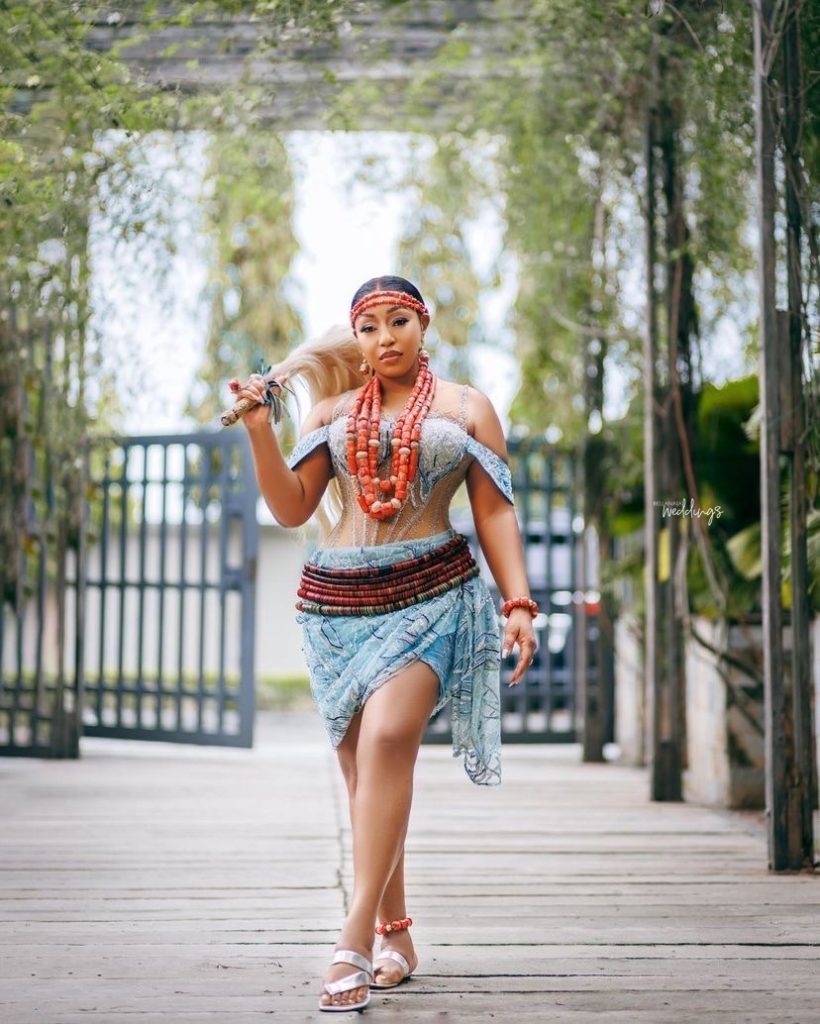
Hers was a striking look that reflected the beauty of the Igbo culture.
More so, in keeping with the times, brides are also opting for modern hairstyles to complement their outfits. From sleek updos to intricate braids, these hairstyles seamlessly intertwine with traditional attire, adding a contemporary flourish to the overall look.
Accessories have not been left untouched by modernity. Swarovski-encrusted headpieces or statement earrings are finding their place in Igbo bridal fashion, offering a touch of opulence and individuality.
These modern twists, however, are seamlessly woven with tradition, creating a beautiful blend of the old and the new.
Significance of Colors in Igbo bridal attire
Within Igbo culture, colors aren’t just hues but carriers of profound symbolism. They infuse traditional bridal attire with layers of meaning, adding depth to the bride’s narrative.
- Red: In Igbo tradition, the color red resonates with the essence of life itself—blood. It’s a symbol of life and renewal. It’s also seen as a color of love, passion, and strength. When a bride wears red on her wedding day, it’s a declaration of the happiness and joy that courses through her veins as she steps into this new chapter of her life.
- White: This is another color in the bridal attire that holds a cherished place in Igbo tradition. It’s often used as the main color for the bride’s dress, signifying purity, innocence, and the start of a new journey. The color white embodies the sanctity of the union and the clean state upon which their future together is built.
- Gold: This is a color of unmatched richness and elegance, and carries a profound significance in Igbo culture. It’s the embodiment of wealth, prestige, and royalty. In Igbo bridal attire, gold is often used to add a sense of luxury and opulence to the overall look. The shimmering gold is seen as a sign of good fortune, an announcement that prosperity and a radiant future accompany the couple as they start their journey together.
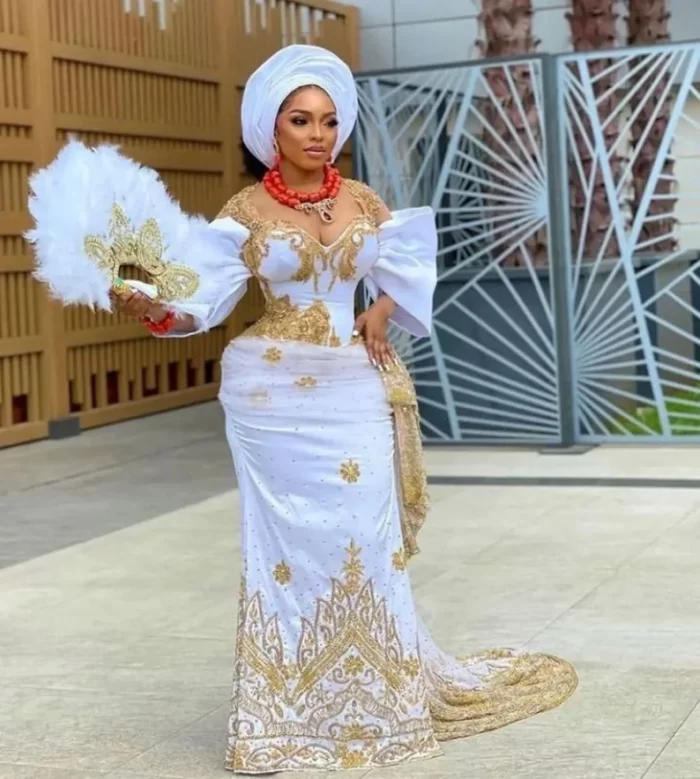
The colors red, white, and gold are not the only colors with significance in Igbo bridal attire. Other colors also have special meanings, adding layers of symbolism and meaning to the bride’s story, family traditions, or regional influences. Each of these carefully selected colors reminds us that while tradition binds, it also accommodates the many experiences and stories within the Igbo community.
In closing
The Igbo bridal attire is a beautiful representation of the rich culture and tradition of the Igbo people. Putting on the Igbo bridal attire is a ritual in itself. It’s a moment of transformation, as the bride is transformed from a young woman into a symbol of beauty and tradition.
Each element of the attire, carefully chosen and put on with care and attention, tells a story and carries a deep significance. From the rich colors to the intricate patterns and designs, each element is a unique and timeless tradition that is still celebrated and honored by generations of brides.
With its intricate details and exquisite designs, the Igbo bridal attire is a true showcase of beauty and tradition. This timeless tradition stands as a deep reverence for the past, the vibrant celebrations of the present, and the hopeful anticipation of the future. It’s an age-old custom that symbolizes a culture’s spirit, a people’s pride, and a heritage’s longevity.




